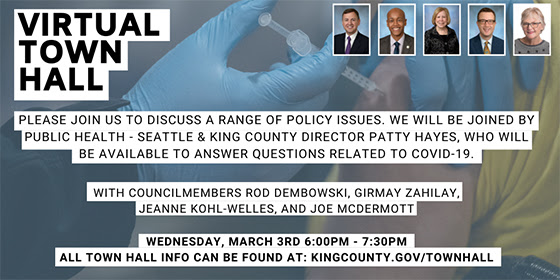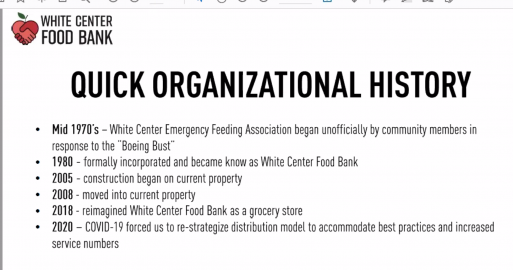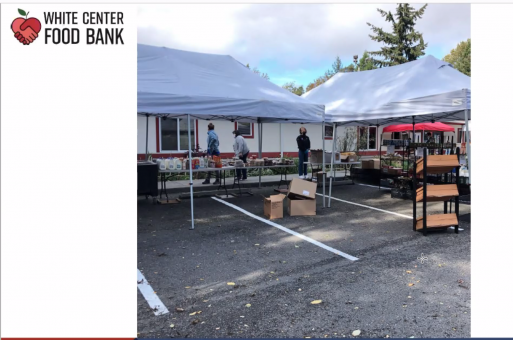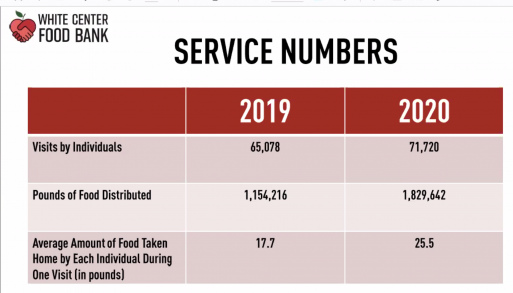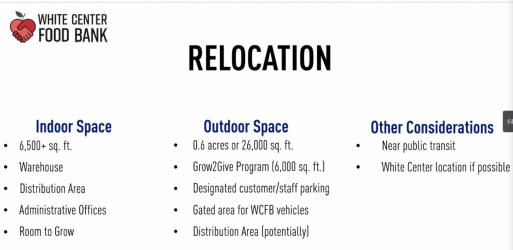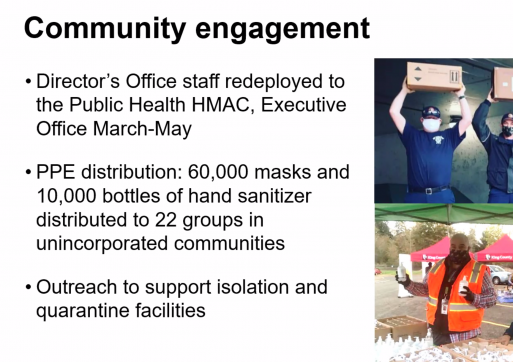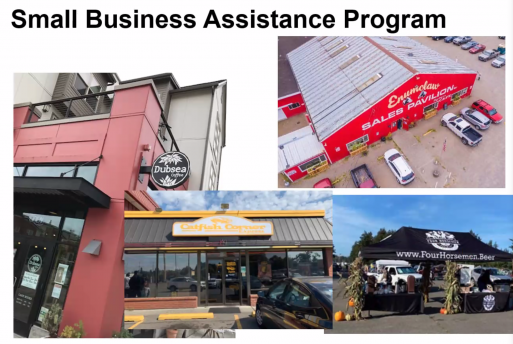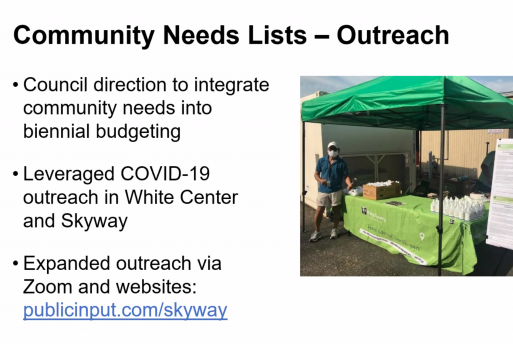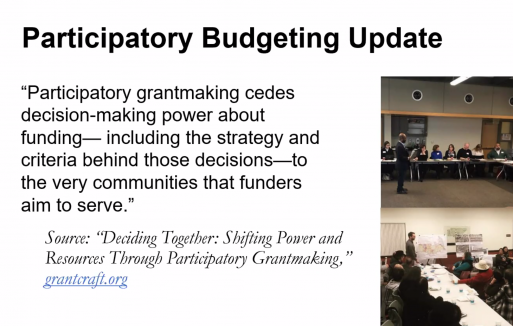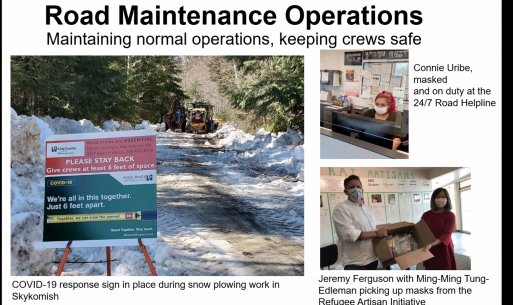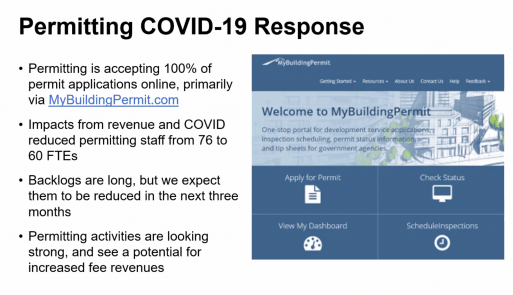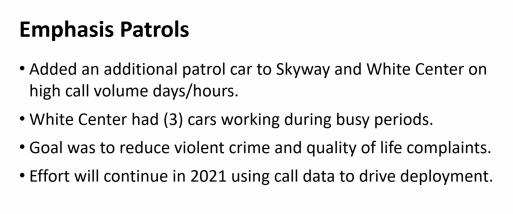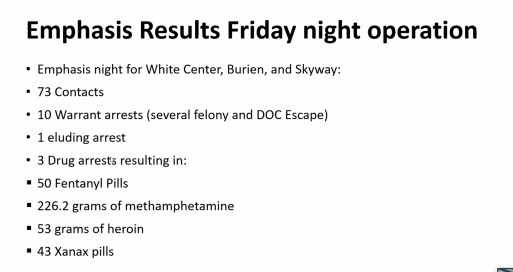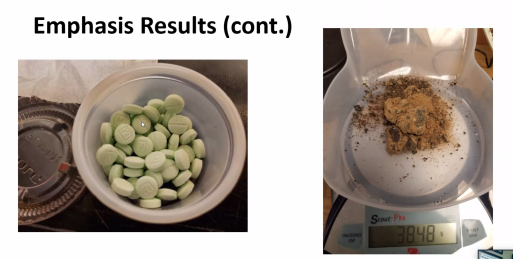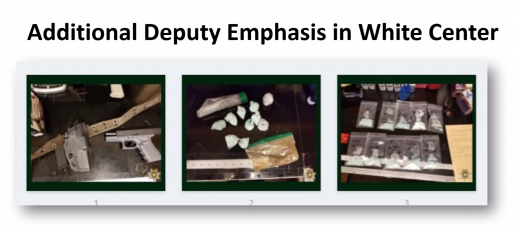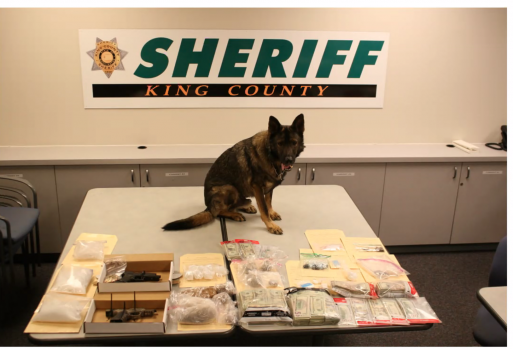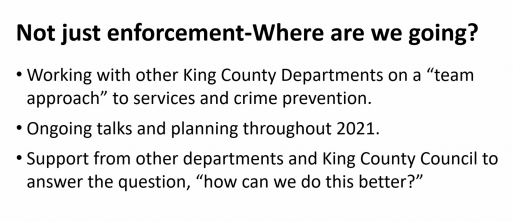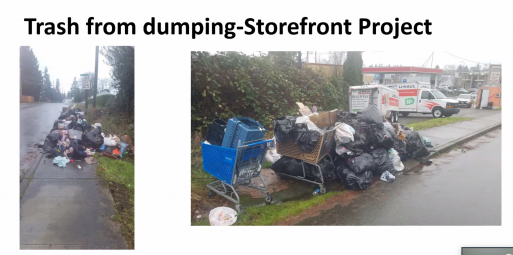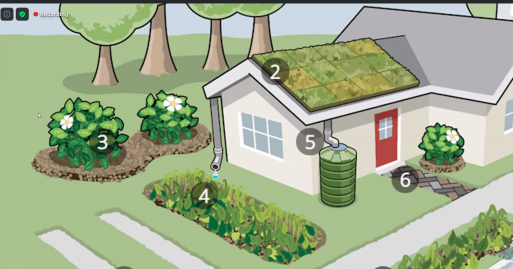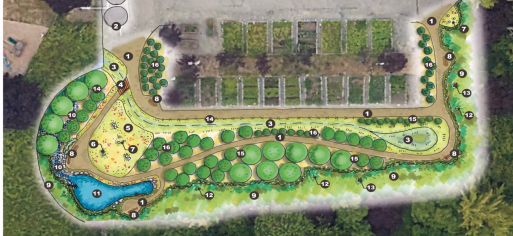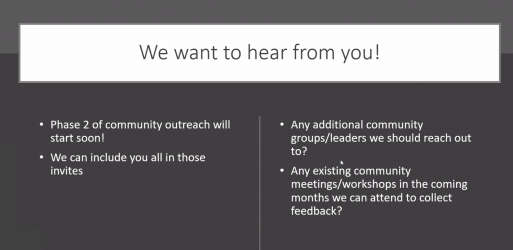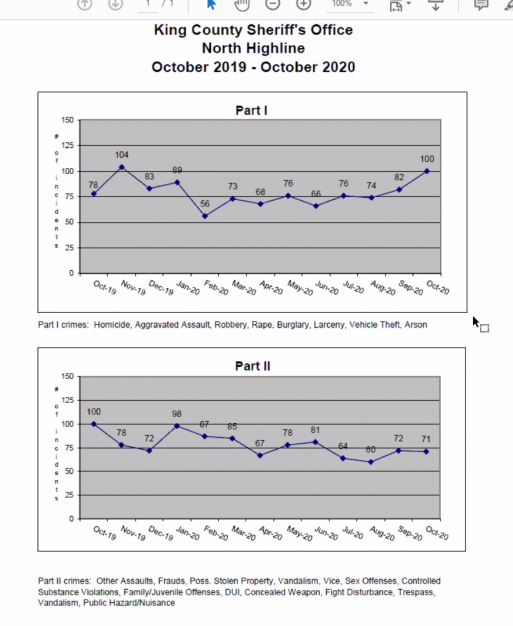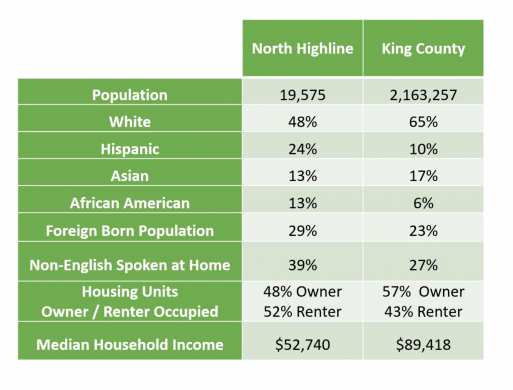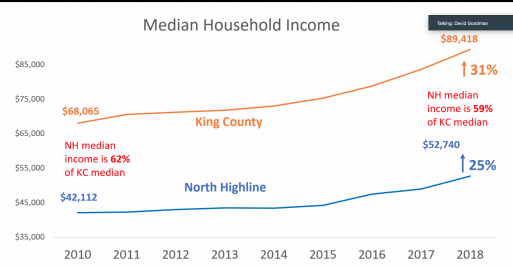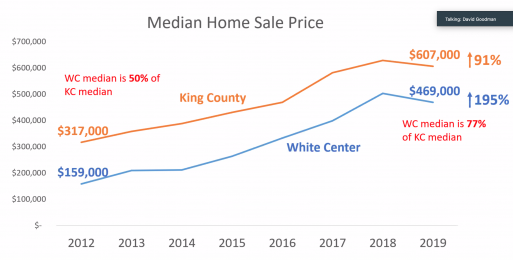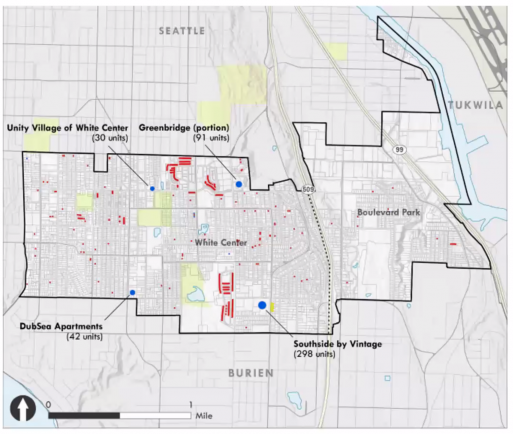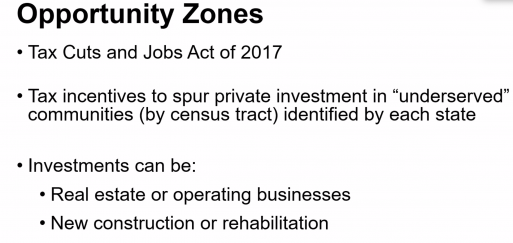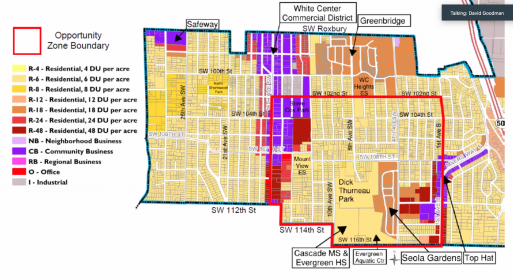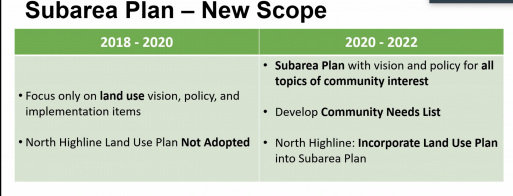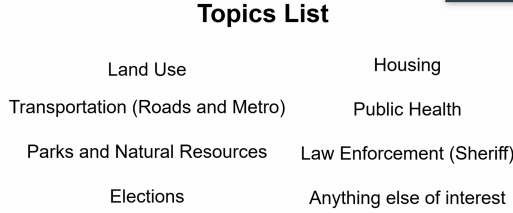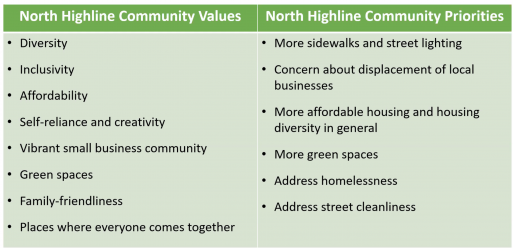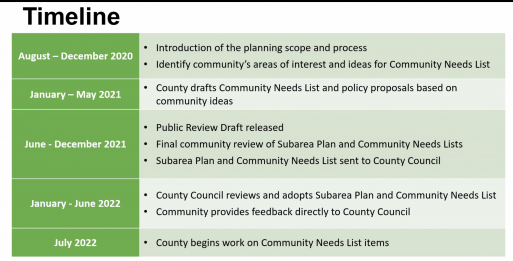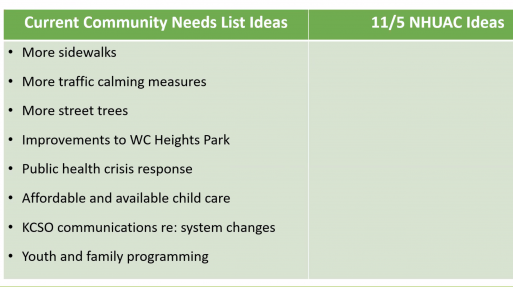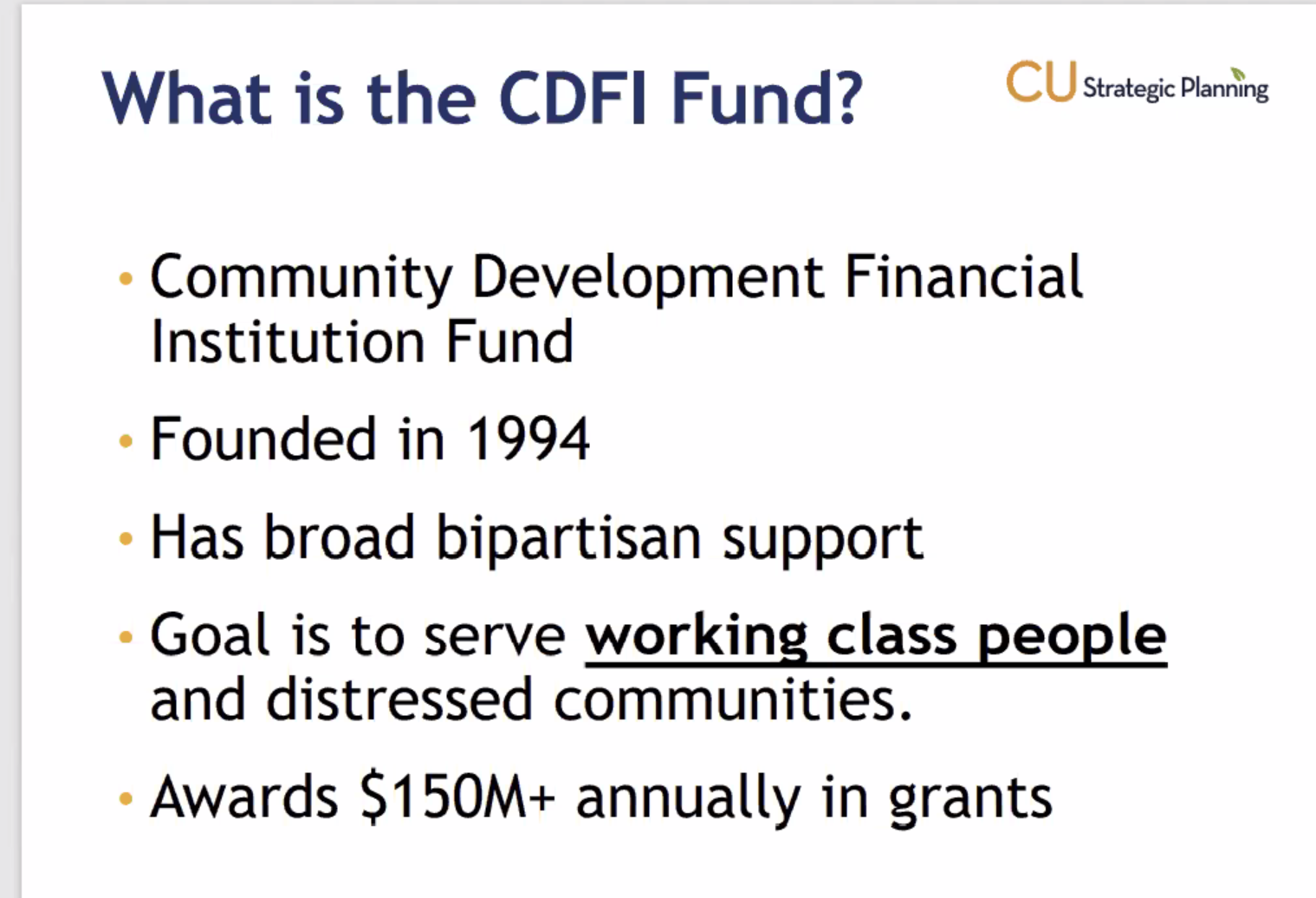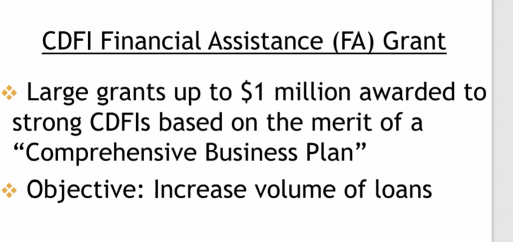By Tracy Record
White Center Now editor
Usually, the county’s annual Town Hall for unincorporated North Highline fills the community room at Seola Gardens with people.
This pandemic year, that’s still out of the question, so instead, county department heads, managers, and other reps – plus one “partner” agency rep with new info about a future major project – filled a screen Thursday night. Otherwise – the format was much the same, minus pre- and post-presentations mingling.
Department of Local Services director John Taylor emceed. County Councilmember Joe McDermott joined “from my basement office in West Seattle.”
First up: Councilmember McDermott noted that after seven months (original WCN report here), the controversial county-owned quarantine/isolation site in Top Hat had yet to host anyone, but the county’s continuing to keep it ready and available. What about the site’s future? He thinks it can serve “an important role” in the area but insists “the county doesn’t have a plan” – he cited ideas he says he’s heard, from housing to open space. He promises that the county will work with the community in deciding the site’s future.
McDermott also spoke about the budget, on which the County Council is working right now. A highlight: $1.8 million in marijuana-tax revenue is planned to be diverted to Local Services, $450,000 of it for participatory budgeting, the rest for “an urban unincorporated King County investment pool.” And he noted the county has had “four supplemental budgets” to deal with COVID response.
He fielded a question about the scooter-sharing program launched two months ago, noting it’s a 1-year pilot project. The program, with scooters from two companies, started in mid-August. Any extension would be up to the County Council. “I’m optimistic about the experiment and hearing from White Center about their experiences.”
McDermott also was asked about the status of the proposed fireworks ban. “The legislation I introduced to ban them in unincorporated King County would mirror most cities … a year ago on 4th of July, we had a tragic death of a North Highline resident because of fireworks,” and that’s why he worked on a ban. It’s been delayed by everyone working remotely – he hopes to get the ban enacted before year’s end, he said, but since it can’t go into effect until a year after passage (that’s a state mandate), even if he does, the ban wouldn’t cover next 4th of July.
Another question: What about a space for the LGBTQ+ community in White Center? McDermott said that’s a great addition to the community needs list and also something that could be discussed in the context of the Sub-Area Plan. (Explained later in the meeting, here’s what the needs list is about:)
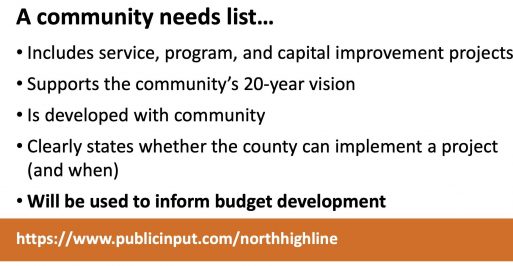
The North Highline Subarea Plan is expected to go to the council late next year and be adopted in 2022, McDermott said.
Elections director Julie Wise made the next presentation, saying they’re challenging voters to break 90 percent turnout – you should get your ballot no later than Monday. She said they’re confident the ballots will get to everyone within the 5-day post-mailing window. Ballot drop boxes are open – 73 of them around the coumty, each weighing half a ton – the local drop box is outside White Center Library. “We will have staff emptying those drop boxes every single day.” Before your ballot arrives, get ready by reading the voter pamphlet (all the candidate and measure info is online too). If you’re going to return your ballot via a drop box, please do it BEFORE Election Day, Wise implored. Any questions? You can call 206-296-VOTE. “Vote early, vote early, vote early,” she implored.
Next: Assessor John Wilson explained ways people can reach his office:
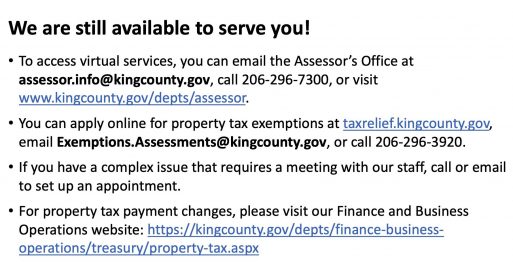
He said they’ve received 9,000 applications for tax exemptions this year and they have a backlog – if you are waiting and need a deferral for the second-half property tax payment, to January 31st, apply by next Monday (October 19th).
Regarding property values, COVID has not had a significant effect on residential values; they’re still watching to see how the West Seattle Bridge closure will affect area values. Values have gone down a bit in “near-in” areas like downtown, West Seattle, White Center, 1 to 5 percent, as a “market correction” more than anything.
Eligibility for the senior tax reduction has been expanded:
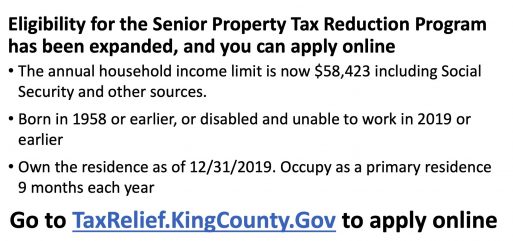
Now – a very different picture from residential – the Assessor’s Office wants to hear about impacts on commercial property:
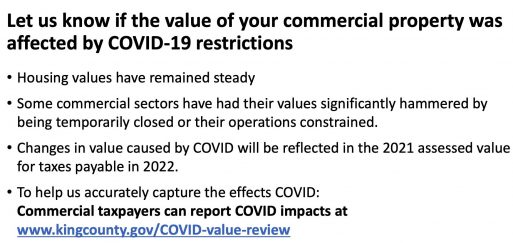
Then, on to law enforcement. From the King County Sheriff’s Office Southwest Precinct, Major Jeffrey Flohr presented. He went through several topics, some of which he discussed at the previous week’s North Highline Unincorporated Area Council meeting (WCN coverage here), plus some general crime prevention/reduction notes:
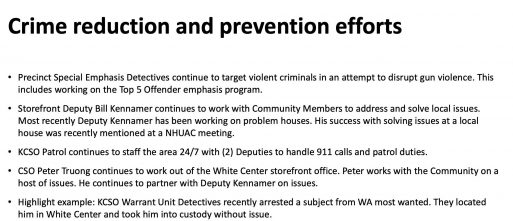
he gave some light on what happened at 17th and 107th earlier in the day – see our separate report here. He had high praise for White Center Deputy Bill Kennamer, calling him a “rock star” and saying he’s safe from budget cuts. He said two deputies are usually working in the WC area, but they also back up the Skyway area, and vice versa, so a big problem in either area can have up to four deputies on it. Peter Truong continues working as a community deputy.
Maj. Flohr also mentioned that online reporting is back (for non-emergencies) and is available in more than 10 languages.
The camera test program will be “out of this precinct” and it’ll likely start in November/December, as he detailed at the NHUAC meeting.
A question answered by Major Flohr: Noise from modified vehicles – said the attendee, “it’s not a victimless crime … my family and others pay the price for the decision not to address this crime.” The attendee wonders what’s being done about it. Maj. Flohr said deputies are encouraged to go after that kind of violation when they see, or hear about it.
Another question: What funding will replace the marijuana-tax money that’s being moved? Nothing – but, he said, it won’t affect the patroling availability in WC. Councilmember McDermott said the pandemic recession is causing cuts in various county departments but this isn’t an additional cut – service levels will be maintained.
Also: What do you do when you think you hear gunshots? Call 911. That will help them triangulate where it might have happened. DON’T call the non-emergency line – that won’t.
Aaron Garcia of the White Center Community Development Association provided an update too, mostly focused on “The Hub,” the project long in the works at 8th/108th, where the White Center Food Bank and Mary’s Place shelter are now. (Here’s his full slide deck.) Of the agency overall, Garcia explained, “We wear many hats .. I like to explain the CDA as four buckets of support … family development …economic development … community building … youth leadership development (like) White Center to White House …” Since the pandemic began, they’ve distributed more than half a million dollars to community members. He showed a rendering of the project at 8th/108th:
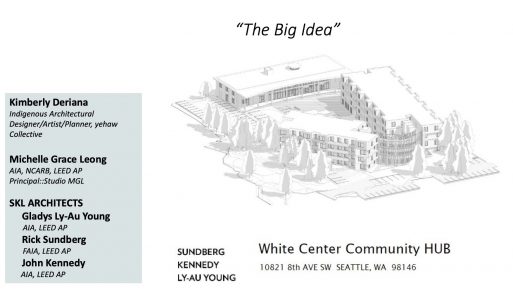
He said a Native architect is leading the project. Garcia also showed the principles guiding the project, dubbed the White Center Hub, and its environmental context:
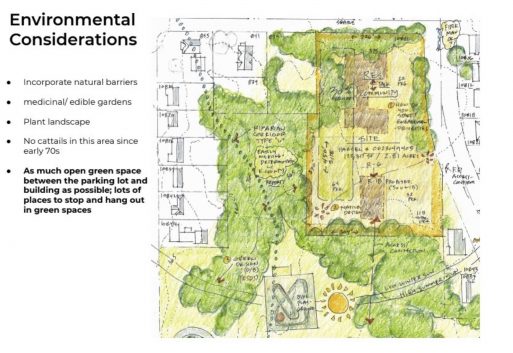
“We have to be sure we’re being good environmental stewards of the land,” he said, ensuring that they preserve trees on the site, for example, and ‘actually centering everything around that Madrone tree in the middle,” with a recognition of the “seven generations” Indigenous concept. “We’re trying to … ensure this will be one of the first Net Zero affordable-housing projects.” Another preview:
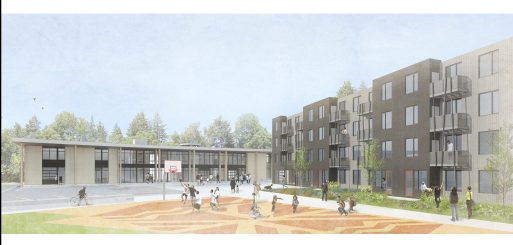
WCCDA, Southwest Youth and Family Services, the YES Foundation, Be:Seattle will all be partnering at “The Hub.”
Back to county staff:
Susie Levy provided a COVID-19 response update. Nearest testing sites: Tukwila and West Seattle (Southwest Athletic Complex). Rates are rising across the county, 92 of 100,000 recently, almost four times the rate they’re hoping for, and the North Highline rate is about 200 per 100.000. She discussed the racial inequities of how COVID-19 affects areas. “We’re committed to implementing a racially equitable response to this crisis.” Levy also touted the King County health services available in the area.
Next, Dwight Dively provided a budget primer, since the County Council is in the thick of budget review right now.
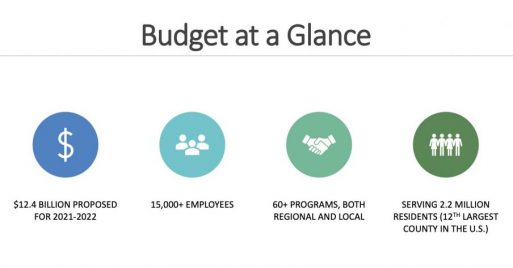
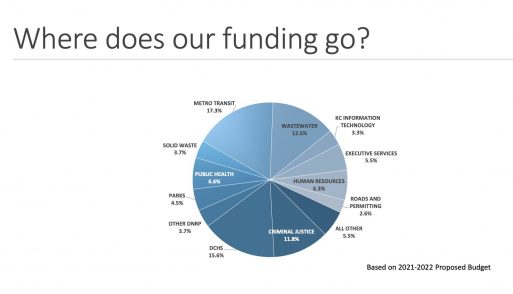
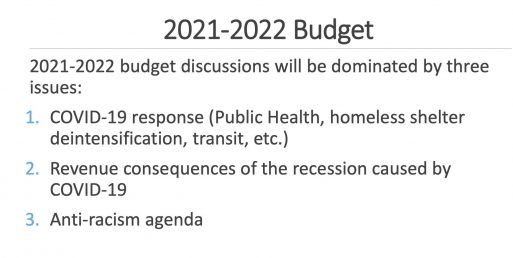
One key point – outside assistance for COVID relief currently ends at year’s end, and if more doesn’t come through, that’s going to put an end to many things. While the pandemic has meant a decline in demand for some things like transit, there’s been increased demand for other things, like health services. He also spotlighted the anti-racism focus of the budget. If you have budget input, get it to Councilmember McDermott!
First question after Dively’s presentation: What’s up with the West Seattle Bridge and its impacts on White Center? McDermott fielded that. He mentioned that the City of Seattle’s been focusing its mitigation efforts on its own area but he’d be glad to surface concerns – get him details.
Second: White Center needs more sidewalks.How can walking be made safer? Dively said that’s the kind of thing that the money earmarked for “capital investment in the unincorporated area” could be used for. McDermott mentioned various transportation-funding challenges.
So “why is the county intent on increasing density in North Highline” if it can’t cover the needs? Taylor said the county’s Growth Management Act didn’t contemplate urban unincorporated areas and ways to equitably share tax revenue to cover their needs. Taylor also noted that a new roads director has just been hired and one of her attributes is a “deep knowledge” of funding, as they work on ways to get needs covered.
Roads Division: Lydia Reynolds-Jones mentioned the 8th/102nd roundabout, road signs helping people understand how to use it:

She also had some stats – WC has 3 percent of the unincorporated area’s total road mileage.
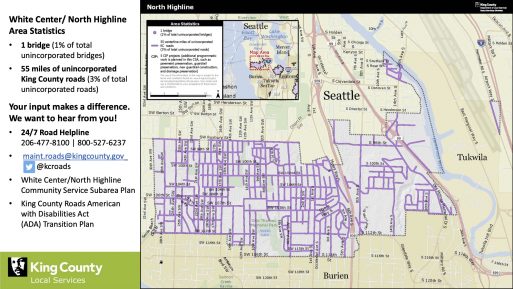
They’re also working on an ADA plan for the entire county. There’ll be a public comment period for the draft plan starting in December. And she showed a list of projects under way now, plus some miscellaneous stats:
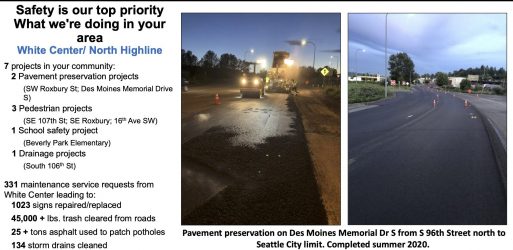
Attendee question: Are sandbags available? Yes, Renton’s the closest site – more info here.
From the permitting division, Jim Chen explained everything can be done online.

Department of Community and Human Services‘ Mark Ellerbrook – the county’s second largest department “by budget” – had more to say about the quarantine/isolation facilities – if you need to isolate or quarantine and can’t safely do it at home, call!
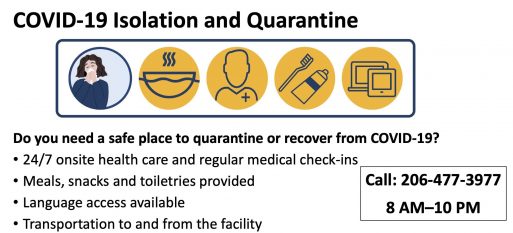
If you need rent assistance, here’s the program for you:
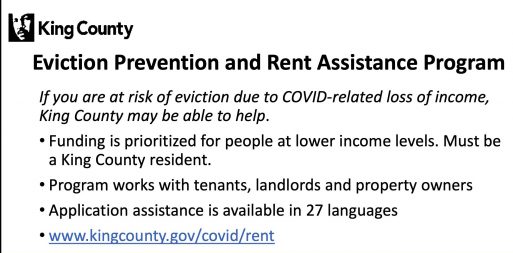
And he noted the two Anti-Displacement Workshops coming up for North Highline and Skyway-West Hill, October 17th (this Saturday) and November 7th – find out about them here.
Question for him – besides a workshop, what strategies are they pursuing to fight displacement? Discussing strategies like Community Land Trusts and inclusionary zoning – where a project has to include a certain amount of affordable housing 0 are strategies that’ll be discussed at the workshop, he replied.
He also was asked during the meeting: What about the fair-housing assessment? It’s not ready yet, he said.
Then came an emergency preparedness presentation by Michelle Chatterton. She recommended hazardready.org, signing up for Alert King County as well as flood alerts. To sign up for Alert KC, text ALERTKC to 99411:
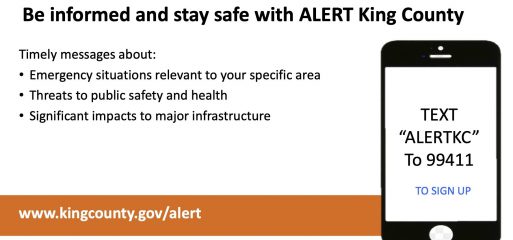
DNRP deputy director Mo McBroom reviewed environmental efforts.
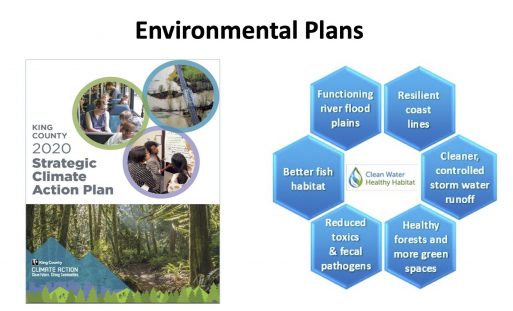
She also talked about Parks projects – the 5-acre site we featured earlier this year; improvements for the White Center Natural Area (a pathway) and at Steve Cox Memorial Park, basketball-court improvements plus isntallation of two Portland Loos, Plus, she said there’ll be a “Spooky Town Hall” event at Steve Cox on October 24th. And she had some resource links:
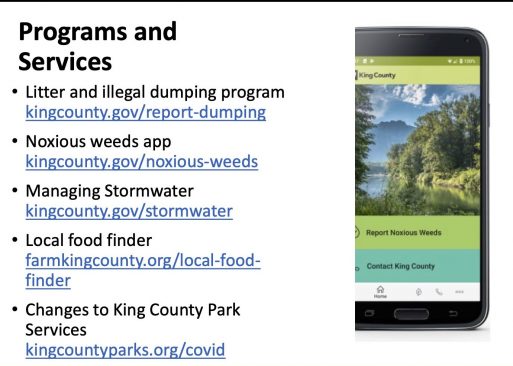
Taylor concluded with a fervent wish that the Town Hall will be back to an in-person event next year.
P.S. See all the county slides from the meeting here.

